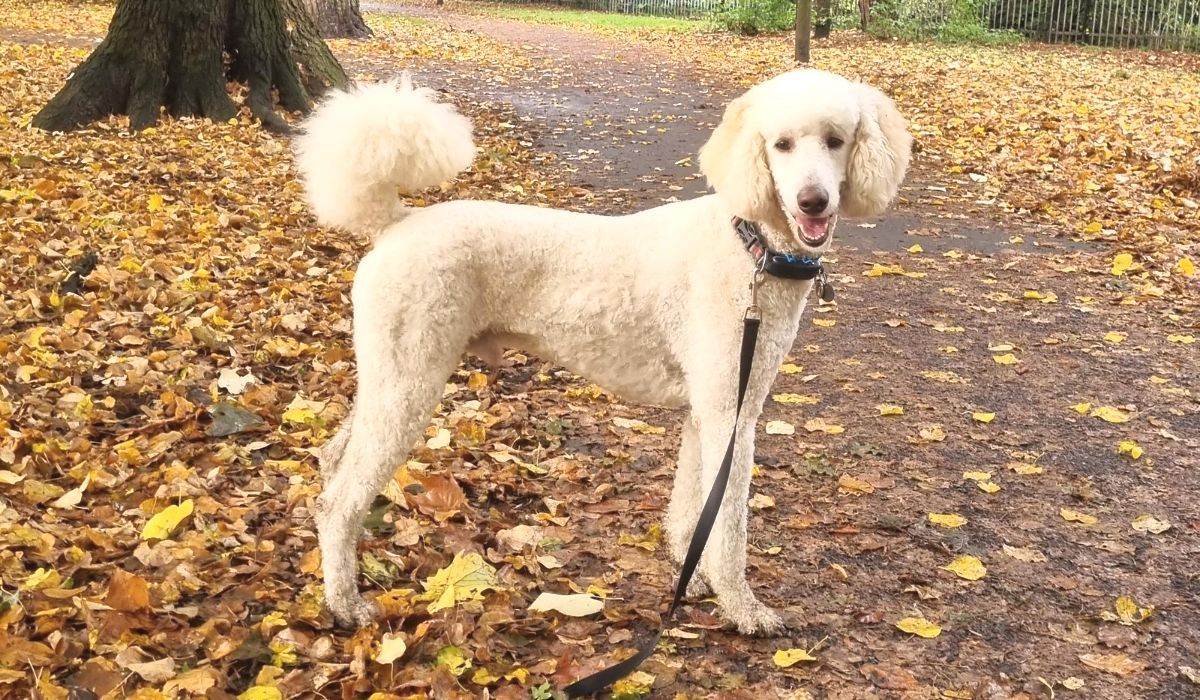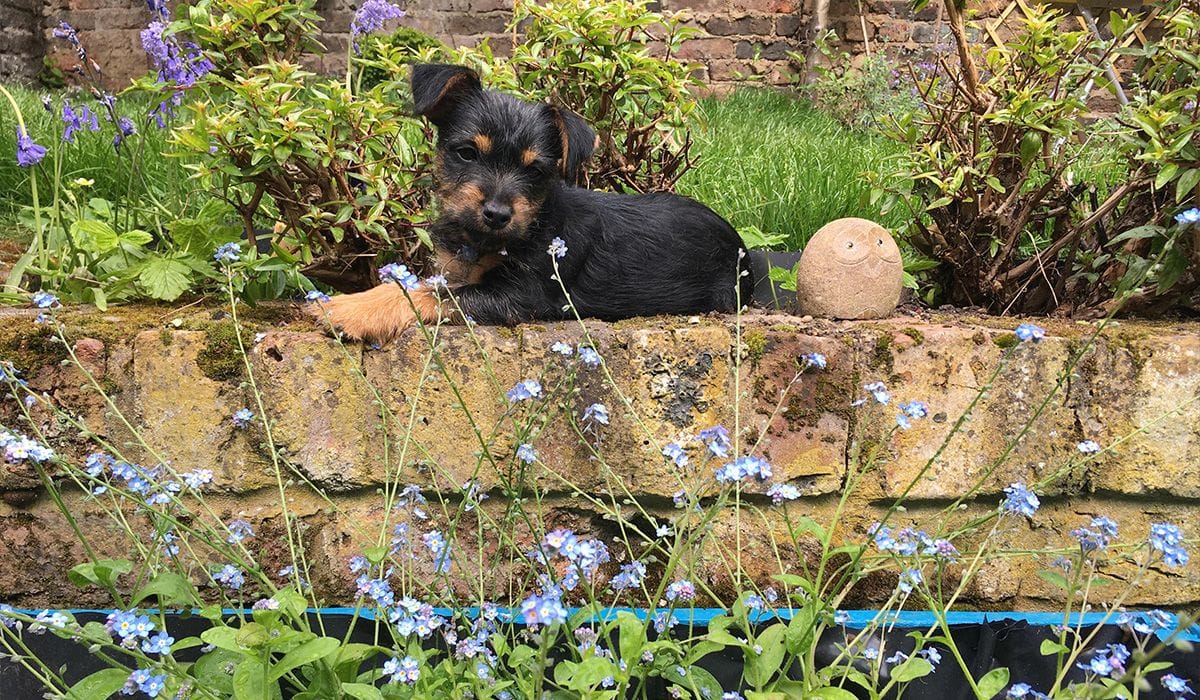Written and reviewed by Dr Jill McMaster BVM&S MBA MRCVS, Veterinary Surgeon and in-house expert at BorrowMyDoggy
With muddy puddles and piles of leaves, autumn can give our dogs some very fun walks! But with the changing of the plants and trees around us, we have to be careful that our pups don’t pick up anything they shouldn’t. There are a good few things to watch out for at this time of year, so let’s see what some of them are.
Summary
Are conkers poisonous to dogs?
Is blue green algae dangerous for dogs?
Are acorns poisonous to dogs?
This autumn you’ll want to keep a close eye near oak trees or near where squirrels are hiding their stores for winter. Acorns and oak leaves can be toxic, they affect some dogs more than others, and there is no way of knowing which dog will be worse off. Some dogs can get liver and kidney problems from acorns and oak trees, so it’s best to keep your pup away from any parts of the oak tree and always be sure to speak to your vet as soon as possible if they do.
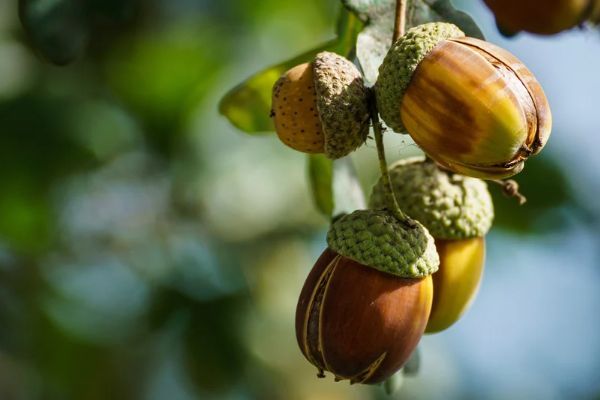
The signs of acorn poisoning can include:
- Feeling and being sick
- An uncomfortable stomach
- Diarrhoea
- Tiredness
- Depression
Are conkers poisonous to dogs?
Conkers, also known as horse chestnuts, come from the tree of the same name commonly found in the UK. The bark, leaves, flowers and seeds (the shiny brown seeds we call conkers) all contain a substance known as aesculin which can be toxic to dogs.
Conkers and the tree bark can also cause a blockage in your pooch’s guts. If your dog picks up a conker in its green, spiky case (or conker shell) they could also damage their mouth and throat with the sharp points.
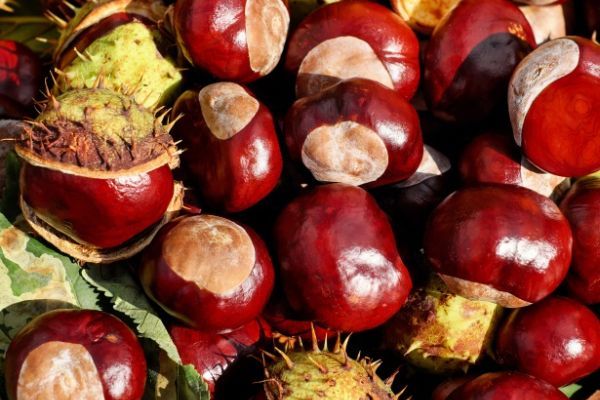
The signs of conker poisoning or obstruction can include:
- Sickness
- Diarrhoea
- Looking uncomfortable
- Increased drooling
- Drinking more
- Not wanting to eat
- Dehydration
If you are worried your dog has eaten any part of the conker tree or its seeds, be sure to contact your vet.
Are pine cones bad for dogs?
Although not thought to be toxic when dry, pine cones can still cause your doggy some issues if they pick them up.
The oil from the tree if it is on the pine cone, or if your dog is swallowing, chewing or rubbing on pine needles, can give your pet an upset stomach, while the pine tree’s sap can also cause allergic reactions in some dogs.
Chewing up pine cones can damage your dog’s mouth and throat, and larger pieces of pine cone can block their throat or gut.
The pine cone may be treated with chemical substances that could also be harmful to your dog, or those used for decorations may have been treated with varnish or other potentially dangerous substances. If your dog loves to pick up pine cones, it might be a safer plan to bring along their favourite outdoor toy on your walks instead to reduce the risk of injury.
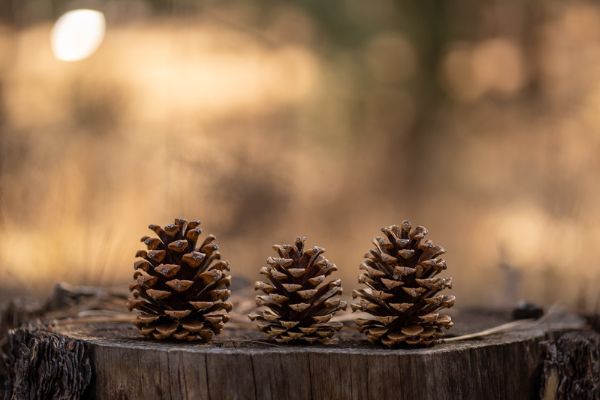
If you are worried your dog has eaten part of a pine cone or accessed pine oil, or appears to be in any way unwell, contact your vet.
Is blue green algae dangerous for dogs?
Warm weather and still water create the perfect conditions for blue-green algae to grow. So it’s most commonly seen in summer and autumn, but it is always worth keeping an eye out for it. Some parks have waterways well signposted to avoid, but this isn’t always the case. Sometimes blue-green algae can be seen and it can look like green flakes or brown dots. Sometimes it’s described to look like pea-soup, or ponds or lakes can look foamy. Other times you might see dead animals in the water, so if you see that, never let your dog go in, or drink from that water. Unfortunately it’s not always obvious so always be careful near water with your dog, because blue-green algae can be extremely dangerous to your pooch’s health and should be avoided at all costs.
The signs of blue-green algae poisoning can include:
- Weakness
- Collapse
- Sickness (+/- blood)
- Twitching
- Fits
- Either really pale or really dark/blue gums
- Difficulty or fast breathing
But don’t wait for signs, if you think your dog could have come into contact with blue-green algae then rinse them off with fresh water and seek veterinary advice immediately, as it can be fatal!

Autumn is a great time for dog walks, and as much as we enjoy the changing of the leaves and cool strolls, our dogs love to investigate all the new, seasonal objects they find. Be sure to keep a close eye on them when they are having a sniff around, and if you have any worries that they have picked up something they shouldn’t be sure to call your vet practice.
This article is for information only, and should never replace any advice, diagnosis or treatment from your veterinary surgeon. Always contact your local vet or out of hours vet without delay if you have any concerns about your dog.
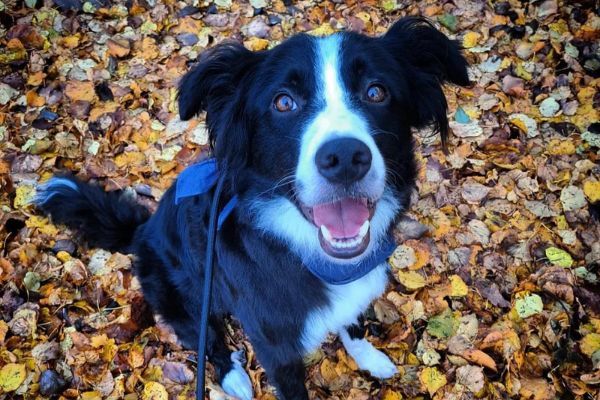
Further info on poisonous plants to dogs
Garden plants poisonous to dogs
What to do if your dog has food poisoning
Preventing herbicide poisoning in dogs
Spring tips to keep your doggy safe
Protecting your dog from pests and insects
Foods your dog can and can’t eat
10 springtime hazards for dogs
